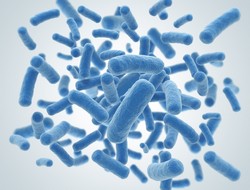Towards a pan-European microbial research infrastructure
Microorganisms serve as natural resources to produce antibiotics and other secondary metabolites of therapeutic value. They are key players in improving food quality and increasing agricultural productivity. In addition, they are the most productive biological players in terms of recycling both nature's and industrial waste. Europe has public collections of microbes that are of high quality, but the existing landscape is fragmented, lacking coherence and coordination. Called microbial domain biological resource centres (mBRCs), there are over 40 public microbial resource centres in Europe. The MIRRI(opens in new window) (Microbial resource research infrastructure - MIRRI) project was initiated with 16 partners from 11 countries and 17 collaborating parties. The consortium received over EUR 3 million in funding to integrate main mBRCs and create a novel pan-European coordinated microbial research infrastructure. To begin with, the culture collections were divided into three broad specialised groups – medical, applications (e.g. agriculture and waste management), and physiological and ecological biodiversity. MIRRI created an operational concept for a sustainable infrastructure. They also developed policies for harmonised accession, data management and regulatory compliance as well as biorisk assessment and biosecurity measures. To date, only five countries have signed a Memorandum of Understanding and other countries are yet to get on board. MIRRI is working on implementing a legal status for non-profit operation even after the project has ended. Meanwhile, project partners are participating in other EU-funded projects such as EMBRIC(opens in new window) and CORBEL(opens in new window), and will continue to apply for national and international funds. Future funding will enable partners to harmonise the information technology structures of different mBRCs for transnational access to resources, data, services and expertise. The success of the project is evident in the fact that MIRRI now comprises 28 collaborating parties from 19 European countries. Coordinated data and services could prove invaluable to users from the academic and bioindustrial areas and will foster a knowledge-based bioeconomy. MIRRI members remain undeterred in their quest to realise an international-level collaborative work environment. Areas slated to benefit include biomedicine, agriculture, food production and security.







